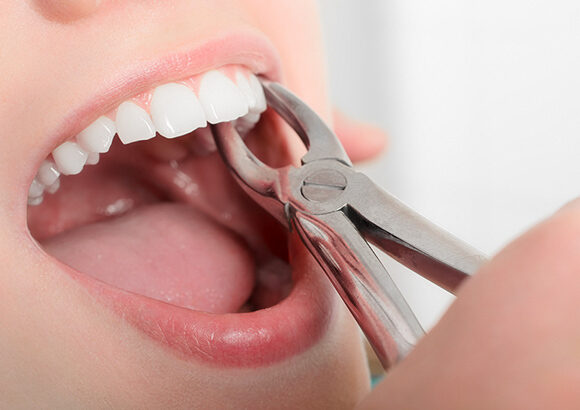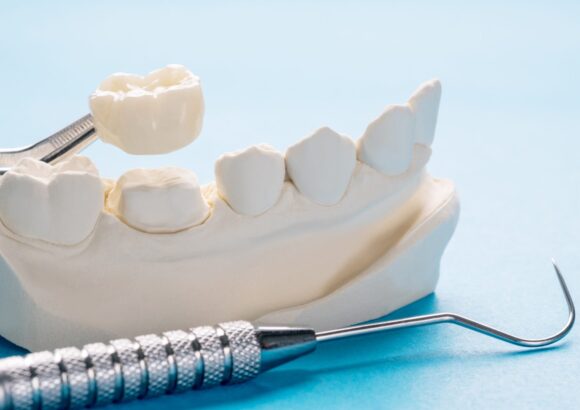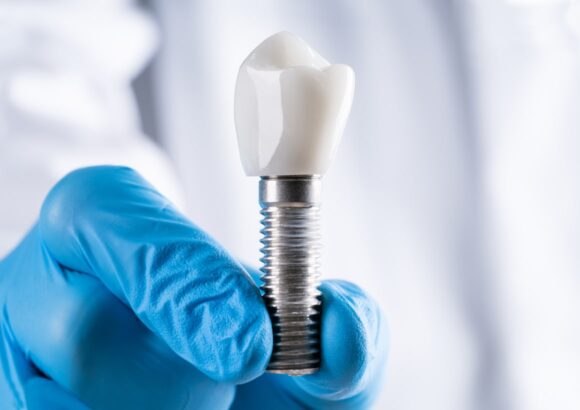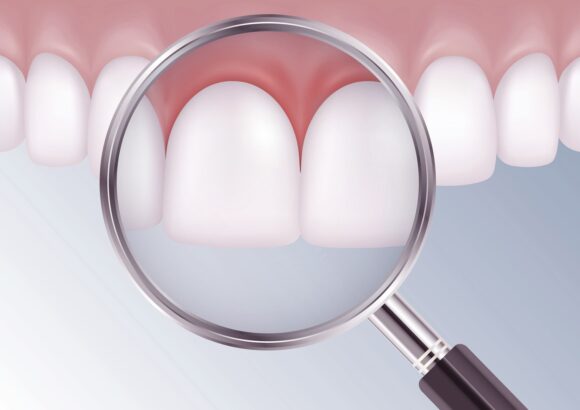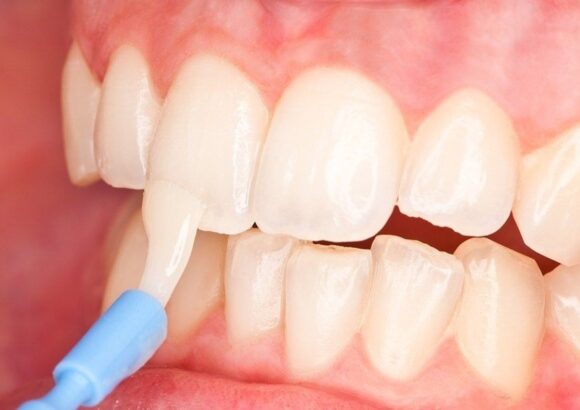Our Departments & Services
DentalConcepts provides an extensive range of services for all dental issues.
Tooth Extractions
If you are experiencing sensitivity or are suffering from advanced periodontal decay or disease, you may be required to have a tooth extracted. Our dentist can safely remove the affected tooth without the need for major surgery.
Reasons for a tooth extraction
Some of the common situations in which a simple extraction can help reduce pain or prepare you for another cosmetic or restorative procedure include:
- Advanced periodontal disease that has weakened the tooth roots.
- To prepare a patient for orthodontic treatment.
- Extra/baby teeth that impede adult teeth.
- Fractured or malformed tooth.
- Severe decay which cannot be treated with root canal therapy.
Tooth Coloured Fillings
Tooth-colored fillings is one of the standard procedure to treat cavities. The color of the filling is made to match your unique tooth color to blend in with your natural teeth. Our experienced team can perform tooth-colored filling treatments for children and adults in a procedure that is usually completed in a single office visit.
Advantages of Tooth-Colored Fillings
- Tooth appearance looks natural.
- Less tooth removal is needed while reinforcing and strengthening the structure of your teeth as compared to traditional metal/amalgam fillings.
- It help to avoiding more serious dental issues and can often prevent the need for a crown or root canal.
Porcelain Crowns
If structural integrity and health of a tooth is compromised, patients can often experience tooth pain, sensitivity, or a visible breakdown and decay of the tooth. Porcelain crowns repairs the damage and can eliminate tooth sensitivity, and restore the normal appearance and function of your teeth with an all-ceramic material that is made to match the tooth’s natural color. Porcelain crown can prevent the need for a root canal or the removal of a broken tooth. In cases where a root canal is required, a crown will be placed to reinforce the tooth with natural-looking results. Crowns are also the final step in the dental implant treatment process. Porcelain crowns have been effectively used for decades to restore both the health and appearance of damaged teeth with natural-looking results. Our experienced dentists offer the latest in dental restoration techniques to enhance both the form and function of your teeth.
Advantages of Porcelain Crowns
Porcelain crowns strengthens and support teeth while providing benefits such as:
- Repairing fractures
- Correcting significant wear from grinding
- Attaching bridges
- Covering dental implants
- Restoring discolored/misshapen teeth
- Preventing further tooth damage
Dentures and Partial Dentures
A denture is a removable dental device and a replacement for missing teeth and surrounding tissue. They are made to closely resemble your natural teeth and can even enhance your smile.
Complete dentures are used when all the teeth are missing, while partial dentures are used when natural teeth remain. A partial denture not only fills in the spaces created by missing teeth, but it also prevents other teeth from shifting by providing structural support.
A complete denture can be either “conventional” or “immediate.” A conventional type is made after the teeth have been removed and the gum tissue has healed which usually takes around 90 days. During this time, the patient get a healing denture to wear as soon as their extractions are done. It will need to be relined as their gums shrink and heal. Once completely healed they will have a new denture made, and their healing denture will be their back-up denture.
Dentures are very durable and will last years but may need repairs, readjusted due to normal wear.
Benefits for dentures:
Enhancing smile and facial tissues.
Improving chewing, digestion and speech.
Implants
1. Implant Supported Bridges
An implant supported bridge provides a secure & permanent solution for patients who have lost multiple teeth. Standard dental bridge can prevent tooth-loss related problems and rely on adjacent teeth for support. The nominally healthy teeth need to be reshaped before the bridge is secured in place using dental cement. An implant supported bridge has several benefits. It do not requires healthy teeth to be ground down in order to replace a missing tooth.
2. Implant Supported Crowns
An implant-supported crown comprises of two parts: a dental implant and a dental crown. The dental implant acts as an artificial tooth root and replaces portion of the tooth below the gum line. The dental crown replaces the portion of the tooth above the gum line and closes the gap in your smile. Crowns made of porcelain or other tooth colored materials are almost indistinguishable from natural teeth and replaces the entire tooth, from the root to the chewing surface.
3. Implant Retained Dentures
Implant-retained dentures are held in position by dental implants and are the next step up from traditional dentures. They function better than conventional dentures and are more stable. Implant-retained dentures uses two to four dental implants to offer support and stabilization. Denture can still be removed for easy cleaning. The use of implants provides security and additional chewing force because it receives part of its support from the gums and more from actual bone.
If you have lost your adult teeth due to age, injury, tooth decay, or disease, implant-retained dentures can be a safe and effective choice for replacing your missing teeth. This type of denture looks and functions like natural, healthy teeth. They allow you to improve/r your smile and regain your ability to chew, eat and speak clearly. They also prevent teeth from shifting and help to preserve your appearance.
Periodontal Services
- Simple CleaningProphylaxis or simple cleaning is preventative care. It’s recommended that you have one or two done every year, as it’ll help prevent more serious issues from arising.During a regular cleaning, the dentist will first check out your mouth for any signs of things such as cavities, abscesses, or cancer signs. Once they’ve made sure everything is okay, then they turn things over to the dental hygienist.They will then thoroughly clean your teeth. They’ll remove bacteria, plaque, and tartar through the use of specialized equipment that’ll do so without harming your teeth. If there are any light stains present, they’ll also remove it with their tools. Once all that’s done, the dental hygienist will then polish your teeth. Not only does this get rid of anything left behind, but it’ll also give your pearly whites a nice shine.
- Gum Disease Treatment
Gum disease, also called Periodontal disease, is an excessive bacterial build up, which occurs between the teeth and gums. Periodontal disease occurs when tartar accumulates more than four millimeters below the gum line, creating pockets between the teeth and gums, where bacteria thrive. If left unattended, periodontal disease can lead to inflammation, infection, bone loss and systemic health problems such as diabetes and heart disease. When diagnosed with periodontal disease, patients will require special teeth cleanings.
Endodontics
1. Root Canal Treatment
Root canal treatment is a dental procedure that relieves pain caused by an infected or abscessed tooth. During the root canal process, the inflamed pulp is removed. The surfaces inside the tooth are then cleaned and disinfected, and a filling is placed to seal the space.
2. Pulpotomy and Pulpectomy
If the decay or trauma is confined to the crown of the tooth, a pulpotomy may be recommended. When a cavity gets deeper, close to the pulp of a tooth, or into the pulp, then pulpal tissue becomes inflamed and irritated. During pulpotomy the inflamed pulp chamber on a baby molar is removed. All the infected material in the pulp of the crown is removed, leaving the living tooth root intact. After a pulpotomy, the empty space is filled with dental cement and a stainless steel crown is placed to restore the tooth.
If the infection involves tissue in both the tooth crown and the tooth root, then a pulpectomy is recommended. During pulpectomy, the entire pulp material is removed from both the crown and the roots. The child’s tooth is numbed and the pulp and nerve tissue from the crown and from the canals of the roots are removed. The pulp chamber and root canals are thoroughly cleaned and disinfected. Then, the tooth and tooth roots are filled with dental cement, and finished with a stainless steel crown.
Teeth Whitening Trays
Teeth are constantly bombarded by things that can stain them, which is why most people develop stains and discoloration on their teeth over time. Whitening treatments can restore teeth to their original color or make them whiter.
Fluoride Treatment
There are many benefits to fluoride to aid in your dental health. The clinical outcomes of fluoride application include: reduced tooth decay, decrease pain and tooth loss, arresting or stopping of growing lesions, reversal or remineralization of decalcified enamel, aids in hot and cold sensitivity, reduction in plaque buildup, and protects sensitive root areas exposed by recession.
Nightguard
If you’re having trouble sleeping at night, then it’s time to start thinking about your teeth! When you’re feeling stressed, you’re more likely to grind your teeth when you sleep. Night guards prevent this from happening. But these benefits offer more than just the prevention of teeth grinding. Nightguard prevent tooth damage, reduces jaw tension and pain, prevent headaches and provides healthy sleep patterns.
Make your dream smile a reality! Call us at 1-800-553-3364 or make an appointment
Open hours
Mon – Thu: 8:00 AM – 5:00 PM,
Fri: 8:00 AM – Noon


